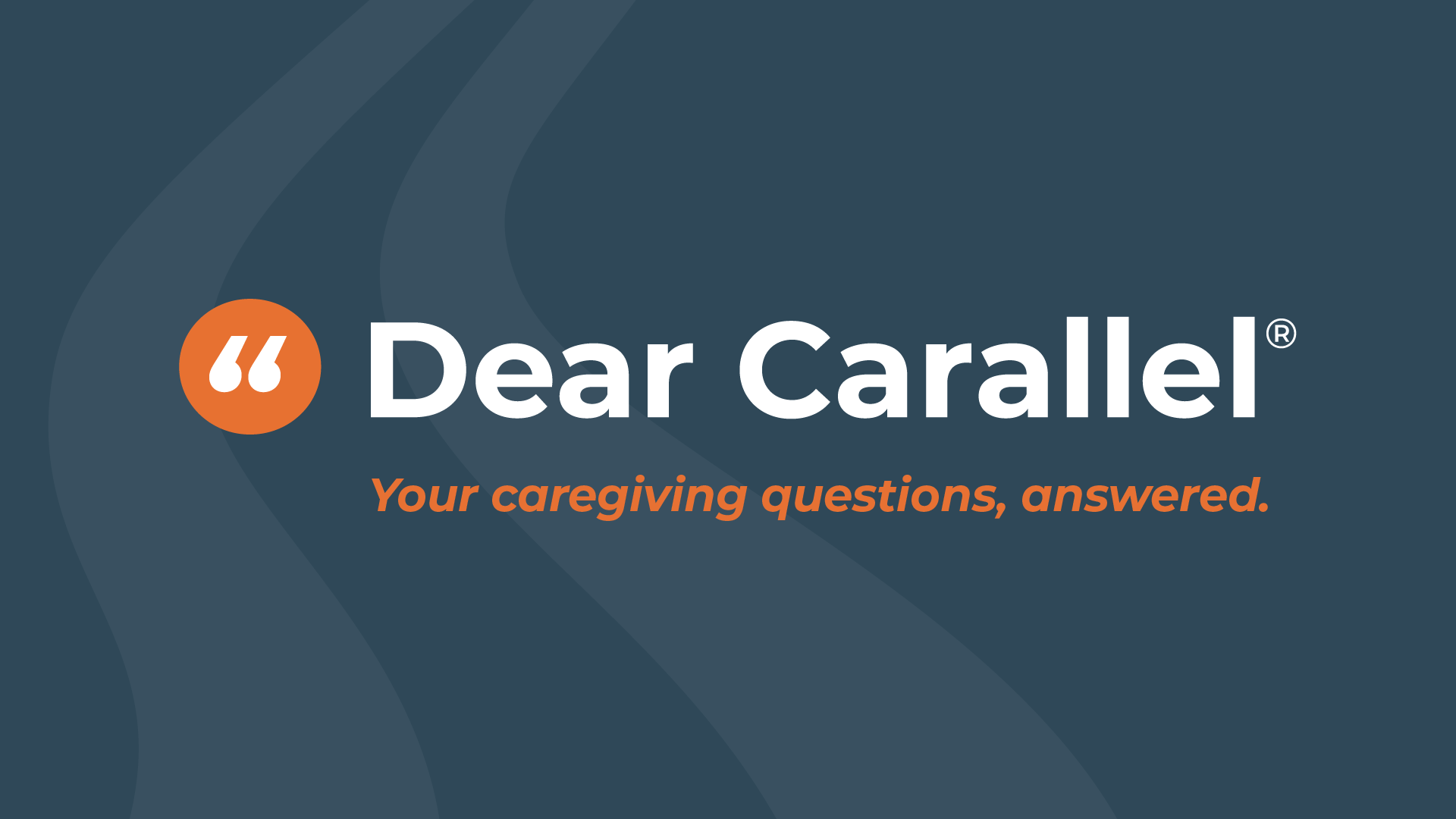Caregiver Question | 10/23/23
I was surprised to be asked and surprised that I couldn’t answer. I have no idea how I’m doing!

DEAR CARALLEL: I’ve been helping my parents since the pandemic and as time has gone on, it has snowballed. Dad is 82 and he’s a shell of his former self while Mom is 77 and although she’s doing better than Dad, she is still dependent on me for everything. I thought it would get better when they moved to assisted living last year but it hasn’t.
Anyway, that isn’t why I’m writing. While I was visiting them on Sunday I was chit-chatting with the Activities Director and she asked me how I was doing.
It caught me off guard at first because nobody ever asks me that. Then I wanted to hug her because it felt so nice to be asked and seen. Next I was surprised all over again because I found I couldn’t answer the question. I had absolutely no idea how I was feeling!
All I could muster was “Ok but emotional”. What is that? How do I explain how I’m feeling? –Alison in Midlothian, VA
DEAR ALISON: Well just like you wanted to give the Activities Director a hug when she asked how you’re doing, I want to give you a hug for asking this question. It’s such an important one!
Caring for a loved one surfaces a kaleidoscope of emotions. And all of them, good and bad, are valid and important.
But as caregivers, we can’t manage them if we don’t understand them. So below I share some common caregiving emotions and a brief tip for managing each. Here goes.
Ambivalence
This is the feeling of both wanting to be doing what you’re doing and the feeling of not wanting to be doing it.
Tip: Everyone has these feelings sometimes and they don’t last forever. Allow yourself to feel them both.
Anger
Anger is a normal part of being around someone who needs help all the time and who might not be accepting of help. It’s also common to be angry when the condition makes them irrational or combative.
Tip: Learn to walk away and take a break–even just for a few moments to collect yourself. Additionally, identifying supportive people who will listen without judgement can be very helpful.
Anxiety
A lack of control or certainty often produces feelings of anxiousness.
Tip: Pay attention to your body. When feeling anxious: Stop. Breathe. Keep breathing. Even a few brief moments of meditation can help.
Irritability
When tired or stressed, it is harder to stay in control of the things we say and feel. We can lash out at the littlest thing because we have no reserve.
Tip: Turn to your Circle of Care to get some time for yourself.
Depression
As a caregiver you are at a higher risk for depression. This is feeling hopeless or helpless, and comes with a host of syptoms that can make it hard to get through the day.
Tip: Talk to your doctor if you think you might be depressed.
Fear and Anticipatory Anxiety
Scaring ourselves about the “what ifs” can be paralyzing and keep us from enjoying the “what is”.
Tip: Have an emergency plan in place that’s relevant to your loved one’s condition–and your caregiving situation in general.
Grief and Loss
Watching your loved one decline and not be able to do things that used to be easy and natural for them is sad. They change and your relationship changes. This is a loss and it’s okay for you to grieve it, even daily.
Tip: Remember it’s okay to feel that way and give yourself permission to do so.
Guilt
Guilt is the feeling we have when we think we have done something wrong, and it comes in many forms. Guilt over your loved one getting sick, for wanting caregiving to end, for your impatience, for not liking your loved one at times, or even for thinking about your own needs.
While feeling guilty as a caregiver is understandable, unless you’ve actually done something wrong (chances are that you haven’t), your caregiving guilt is unearned.
Tip: Forgive yourself and remember that there is no perfect caregiver. You’re doing the best you can.
Resentment
When put in a situation not of our choosing, it’s common to feel negative and resentful. Maybe you, like many others, have felt this way when you’re shouldering the entire load without help from family.
Tip: It’s okay to feel this way periodically but try not to let it linger. Communicate how you’re feeling and ask for help.
✨
While these and other emotions are normal and expected, that does not make them any easier to live with. Acknowledge what you’re feeling and lean on others to work through it.
You’ve got this, Alison!
Hope this helps,
–Jennifer, Carallel Care Advocate
The latest from Carallel

Caregiver Journey Webinar
A Caregiver Conversation by Carallel: Helping Children Adjust When a Loved One Moves In
We dive into the practical realities of moving the person you're caring for into your home - and offer simple tips for helping children adjust....

Blog
The ‘Invisible Second Patient’: Understanding the Role of Dementia Caregivers
There are 16 million Americans caring for a loved one with Alzheimer’s disease or a related dementia today. Despite the group’s sheer size, they...
